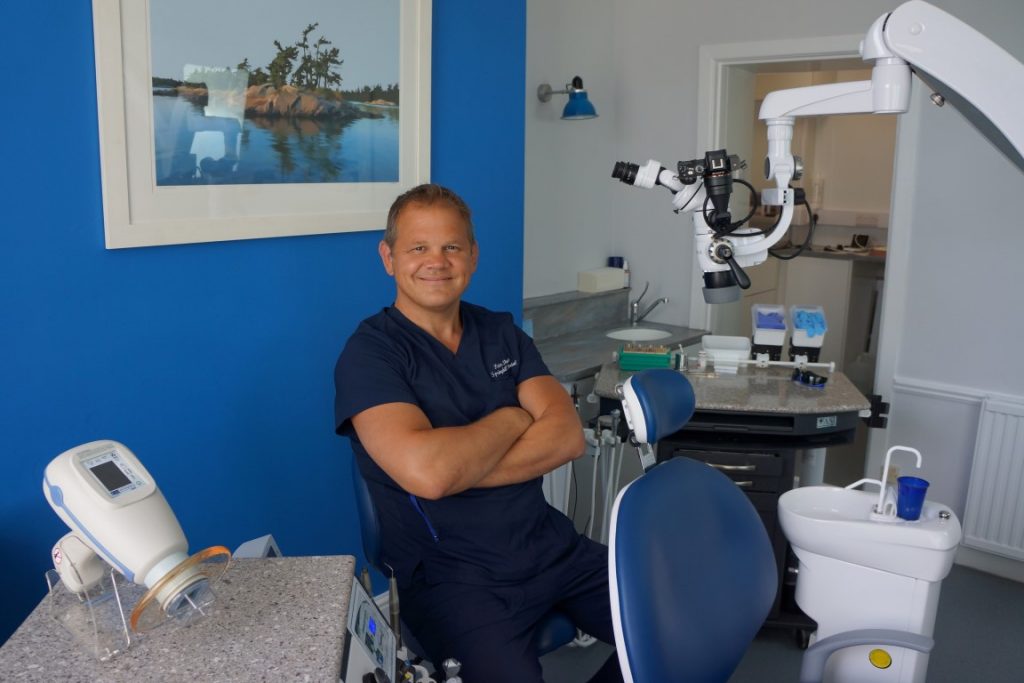General dentists can perform endodontic procedures (root canal treatment) but they often refer patients to an Endodontist.
An Endodontist is a dentist who specialises in saving teeth. They perform routine as well as complex procedures including root canal treatment, root canal retreatment and endodontic microsurgery (also known as apicectomy).

Endodontists are also experts in local anaesthesia, ensuring that patients are completely numb and comfortable during their treatment. There are often lots of horror stories about root canal treatment but you can be assured you are in the best hands!
Endodontic treatment is necessary when the pulp of a tooth becomes inflamed or infected. If this is left untreated it can cause pain or lead to an abscess and eventual tooth loss. The cause of inflammation or infection can vary; deep decay, repeated treatment on the tooth, a crack in the tooth or deep restorations.
Signs and symptoms of pulp damage can include pain, prolonged sensitivity to hot or cold, tooth discolouration, tenderness and/or swelling of the gum.
The Endodontist removes the inflamed or infected pulp, cleans and shapes the root canals and then fills and seals them. It is often required for you to return to your general dentist after treatment to have a crown or onlay placed in order to protect the tooth and return it to its normal function.
After endodontic treatment the tooth may feel tender for the first few days, especially if it was acutely painful before the treatment. This discomfort will usually be resolved by taking painkillers. It is important to follow the Endodontists’ advice and call if there are any problems.
Some teeth may not be suitable for root canal retreatment. This may lead to the tooth requiring an apicectomy.
An Apicectomy involves raising a flap of gum tissue surrounding the tooth to expose the underlying bone. The inflamed or infected tissue is removed along with the end of the root. Suture removal takes place 3-4 days post surgery.